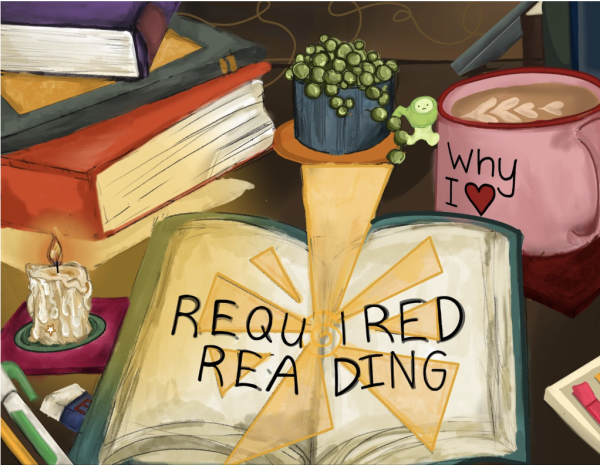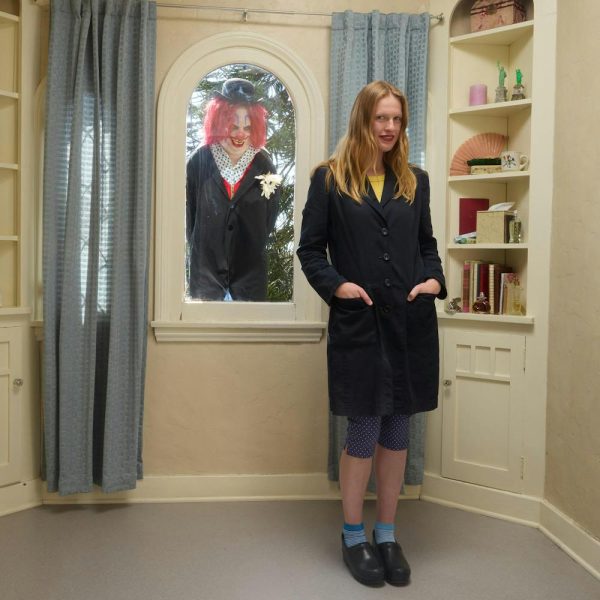Opinion: Dear Spanish Students: A Letter from a Long Time Latin Student
Dear Spanish Students,
I studied Latin for seven years, and throughout that time, you Spanish students have been eager to point out just how unuseful a “dead language” is and how we should wake up and see that Spanish is the superior language. I am here to end this conversation once and for all.
For starters, you might not know how much you use Latin on a day to day basis. I bet, just like every other stressed out teenager, you have uttered the phrase, “R.I.P” (insert your recent failure here) at least once in the past month. Did you know that when you use this phrase, you are actually using a Latin phrase: “Requiescat in pace?” However, if this doesn’t apply to you, then maybe within your free time you were watching your favorite TV medical drama and heard your favorite character yell, “STAT,” which is short for the Latin “statim,” meaning immediately.
If neither of the aforementioned references apply to you, then I am sure you have encountered one of the countless other Latin phrases and roots that exist in the English language— “Carpe Diem,” “exit,” “Et cetera (etc.),” “Persona non grata,” “genus,” “species,” and the list goes on. But you probably already knew that as a student of Spanish because where does Spanish originate from? Oh yes! That’s right—Latin.
Latin is used everyday in some form by native and non-native speakers of English and the Romance Languages—Spanish, Italian, French, Portuguese, and Romanian. So when you Spanish students make a comment about Latin being useless because it’s a dead language, the joke is on you. Latin is not useless. It is one of the most important languages because it is the foundation of language, and by learning it you can better understand how to successfully use language to your advantage.
The usefulness of Latin can also be seen through its complexities. Take for example a project in Germany called The Thesaurus Linguae Latinae, which started in 1890 and is optimistically hoping to be done by 2050. For over a hundred years, teams of scholars have been combing through primary and secondary sources on Latin words to compile a dictionary of every word in the Latin language. Because the language is so complex, this is not an easy endeavor.
“It’s a monumental effort aimed at a small group of classicists, for whom the ability to understand every way a word was used is important not only for reading literature, but also understanding language and history,” as said in the New York Times piece, “Dictionary’s Journey: A to Zythum in 125 years (and Counting).”
Even though The Thesaurus Linguae Latinae makes it clear that Latin is the key to understanding human history and how language works, it would be wrong to say that Spanish is not also useful. To be fair, Spanish is spoken by around 450 million people all around the world, and its ranks are growing everyday. The language is increasingly becoming more important as our world becomes even more interconnected, but that shouldn’t discount Latin’s underlying and continued impact.
A background in Latin has helped me to not only analyze English on a deeper level, but also to comprehend other languages I have never learned. I can read Spanish or French and understand on the most basic level what is occuring. I can also recognize important references to classical mythology in literature. Latin has opened so many doors for me, and everyday proves to be more useful.
Works Cited
Norris, Mary. 2019. “A Quid-Pro-Quo Mystery.” The New Yorker. The New Yorker. November
25, 2019. https://www.newyorker.com/culture/comma-queen/a-quid-pro-quo-mystery.
Quinn, Annalisa. 2019. “Latin Dictionary’s Journey: A to Zythum in 125 Years (and Counting).”
The New York Times, November 30, 2019. https://www.nytimes.com/2019/11/30/arts/latin-dictionary.html?searchResultPosition=1.




























![Dr. Zanita Kelly, Director of Lower and Middle School, pictured above, and the rest of Westridge Administration were instrumental to providing Westridge faculty and staff the support they needed after the Eaton fire. "[Teachers] are part of the community," said Dr. Kelly. "Just like our families and students."](https://westridgespyglass.org/wp-content/uploads/2025/03/dr.-kellyyy-1-e1748143600809.png)




























